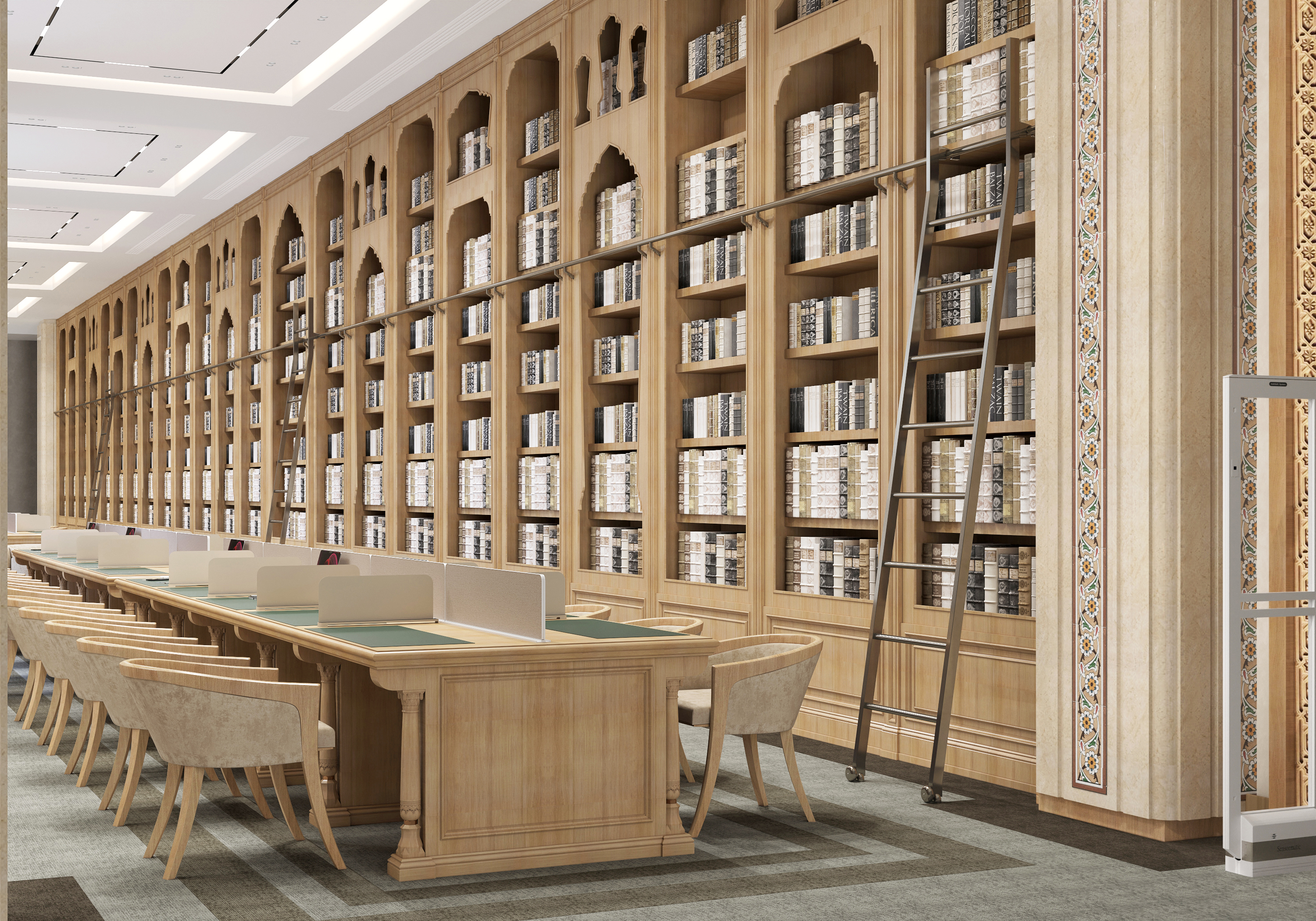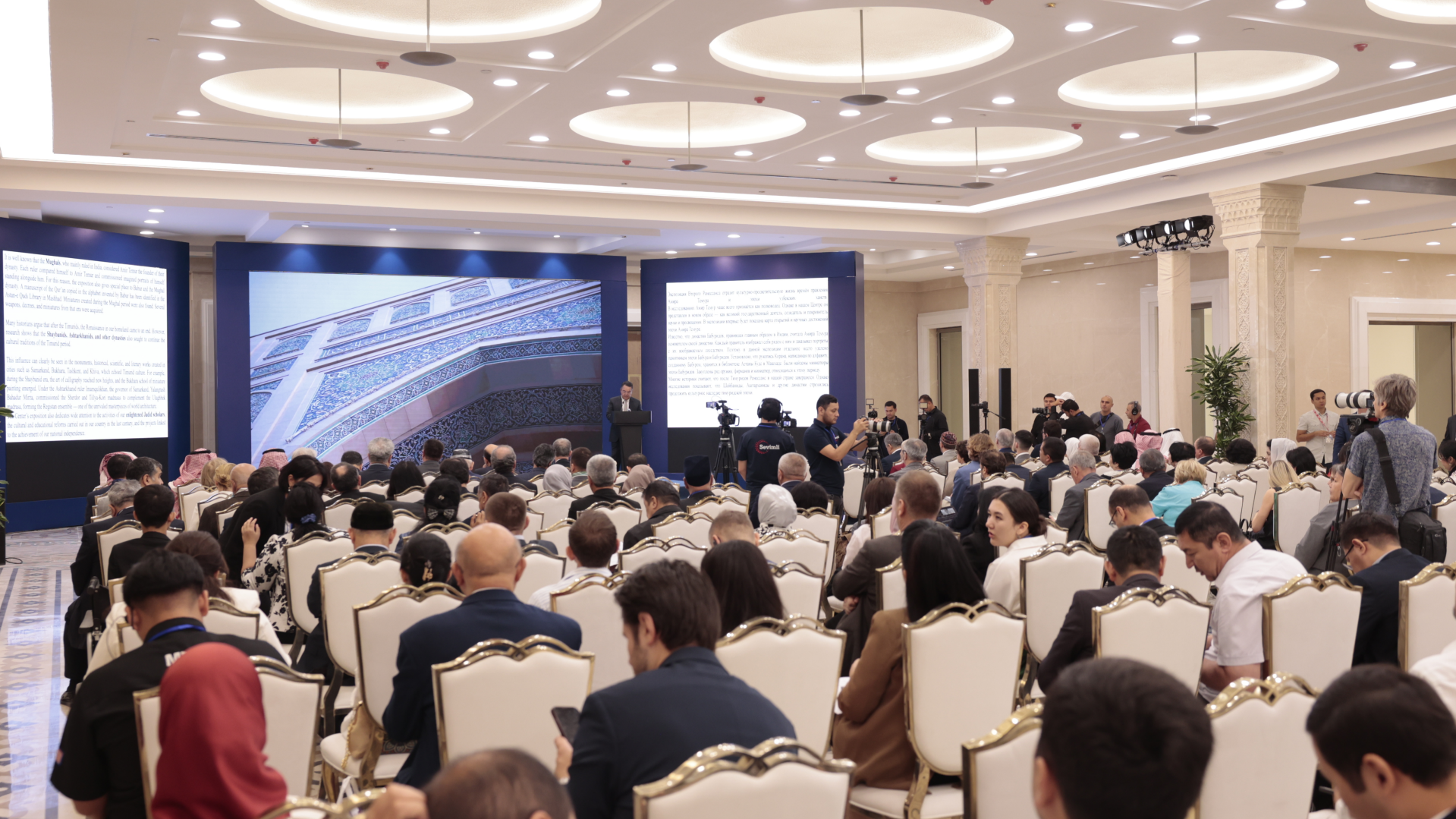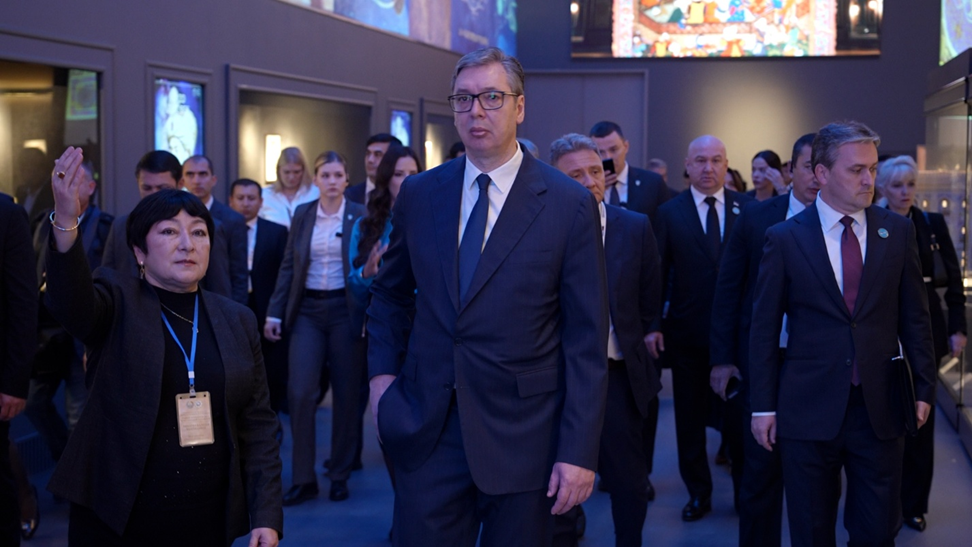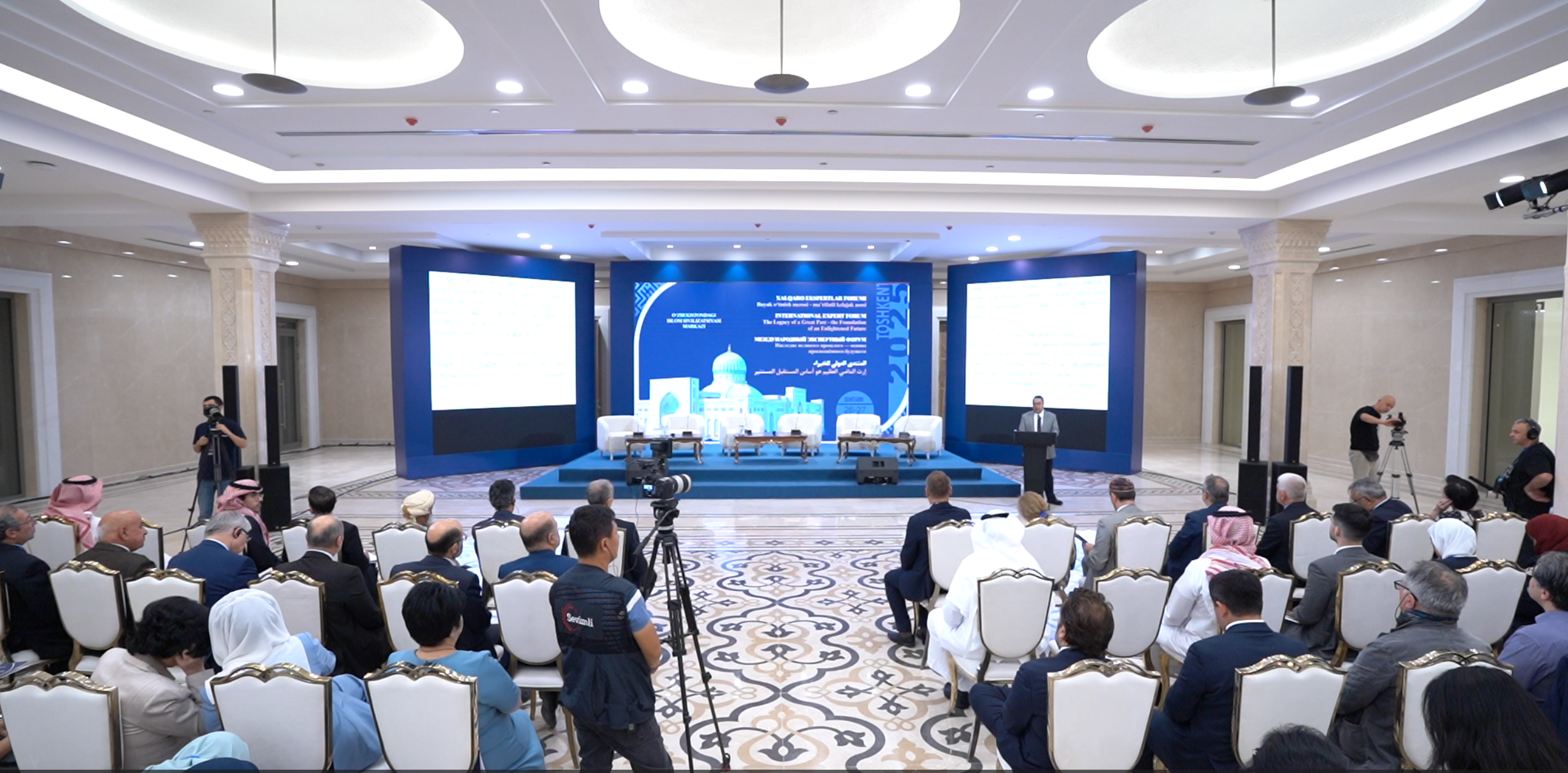Paper – E-book – Artificial Intelligence — the Core Principle of the Modern Library

Imagine this: in the library you visit, ancient manuscripts are viewed on tablets, books are listened to through voice technology, and artificial intelligence finds the exact information you need within seconds. This is not a fantasy it is the real potential of the Library at the Center of Islamic Civilization in Uzbekistan, one of the most advanced libraries in our country.
Thanks to the initiative of President Shavkat Mirziyoyev, this grand project is rising in our capital. The library of the Center of Islamic Civilization in Uzbekistan is expected to serve 200 users at a time. Most importantly, it is open to everyone — scholars, students, schoolchildren, and, of course, individuals with disabilities. Through specialized resources such as books in Braille, audiobooks, and assistive technologies, everyone can access the knowledge they seek here.

Ravshan Qodirov, Head of the Library and Archival Documents Department of the Center:
“This library is not only about collecting books — its true aim is to awaken a passion and inspiration for knowledge in every user. Of particular significance is the exhibition titled “Paper – E-book – Artificial Intelligence”, which vividly showcases the stages of the history of the written word. This initiative fosters an understanding of the deep connection between reading culture and technological progress”. This library is a unique space where the heritage of the past and the technology of the future converge. It is not merely a library, but a center of modern thought for a new era.
According to experts, this library will become a distinctive modern hub for collecting, preserving, and promoting scholarly heritage. Its key priorities include digitizing ancient manuscripts, creating services for people with disabilities, compiling multilingual academic research, and integrating advanced technologies.
Over 10,000 Manuscripts and Rare Printed Sources
The Library of the Center of Islamic Civilization in Uzbekistan, committed to integrating the country’s rich historical and cultural heritage with modern academic research, is emerging as one of the most advanced and significant information-library institutions in the nation. In this regard, working groups of the Center in collaboration with both local and international specialists are actively engaged in wide-ranging projects focused on academic potential, digitization technologies, manuscript preservation, and public accessibility.
More than 10,000 manuscripts and rare printed sources are expected to be included in the library's collection. These priceless materials reflect the immense contribution of the Uzbek people to Islamic civilization. Through digitization, efforts are being made to preserve these invaluable works and make their digital copies publicly accessible. This process enables:
- Preservation of original rare manuscripts;
- Expanded opportunities for academic research;
- Establishment of remote access systems via the internet;
- Inclusion of works in multilingual and multi-format digital catalogues;
Institutions such as the National Library of Uzbekistan and other academic centers are also actively involved in this initiative, and the Center’s comprehensive electronic library database is currently being developed.

Opportunities for Researcher Training and Professional Development
The library has established specialized training programs under the title “Scientific Study and Cataloging of Manuscript Sources”, aimed at enhancing the qualifications of researchers in fields such as source studies, codicology, paleography, and bibliography. Through this initiative, the following opportunities are being created:
- Conducting scholarly analysis of manuscripts;
- Integrating manuscripts into modern cataloging systems;
- Providing instruction to researchers and students;
- Expanding academic collaboration networks;
In addition, practical training sessions under the theme “The Spiritual Heritage of Ancestors: The Art of the Book” focus on the detailed study of ancient scripts, book ornamentation, and traditional binding techniques.
Special Focus on Global Languages in the Collection
Efforts are actively underway to enrich the library’s modern collection at the Center of Islamic Civilization in Uzbekistan with scholarly works on the history of Uzbekistan in Arabic, Persian, Turkish, Russian, and European languages. This initiative aims to elevate the library’s international standing and foster broader academic partnerships.
The collection especially includes:
- Scholarly works in Arabic by regional scholars;
- Persian-language research;
- Analytical articles in Turkish;
- Studies by European academics;
Furthermore, thematic projects such as “Central Asia through the Lens of Russian Scholars” and “Studies on Uzbekistan in European Languages” are enhancing the international scope and reputation of the library’s holdings.

Remote Services Will Also Be Available
According to Ravshan Qodirov, Head of the Library and Archival Documents Department of the Center, several advanced technologies and systems will be introduced to enhance the efficiency of the library’s services, including:
- A fast and efficient resource search and monitoring system based on RFID (Radio Frequency Identification) technology;
- Registration and integration of new national and international publications through electronic catalogues;
- The launch of remote information and library services;
These developments make it clear: the Library of the Center of Islamic Civilization in Uzbekistan is no ordinary library. It is a space where knowledge, enlightenment, national pride, and historical memory converge a profound symbol of our era’s intellectual spirit. Through its activities, Uzbekistan’s rich historical and religious heritage will not only be preserved but also conveyed to future generations through modern tools and platforms. Thus, introducing this library more broadly to the public, encouraging youth to engage with this center of knowledge, and ensuring that scholars benefit effectively from the research conducted here will play a vital role in the collective intellectual advancement of our society.
Most read

Over 100 experts from more than 20 countries of the world are in Tashkent!

President of Serbia Aleksandar Vučić visited the Islamic Civilization Center in Uzbekistan

The Center for Islamic Civilization – a global platform leading towards enlightenment











